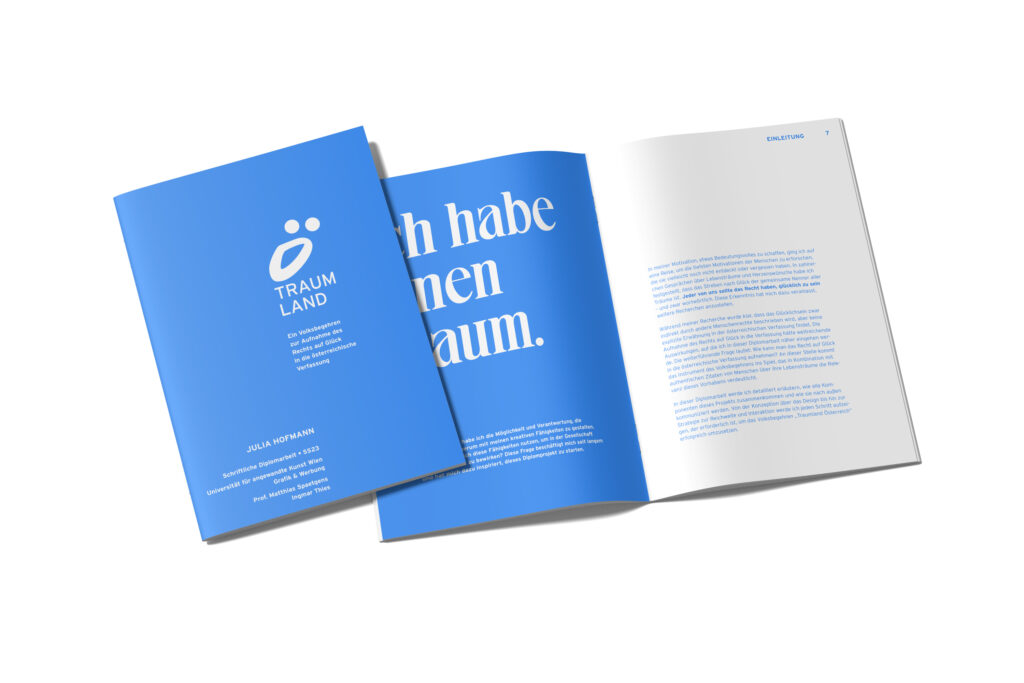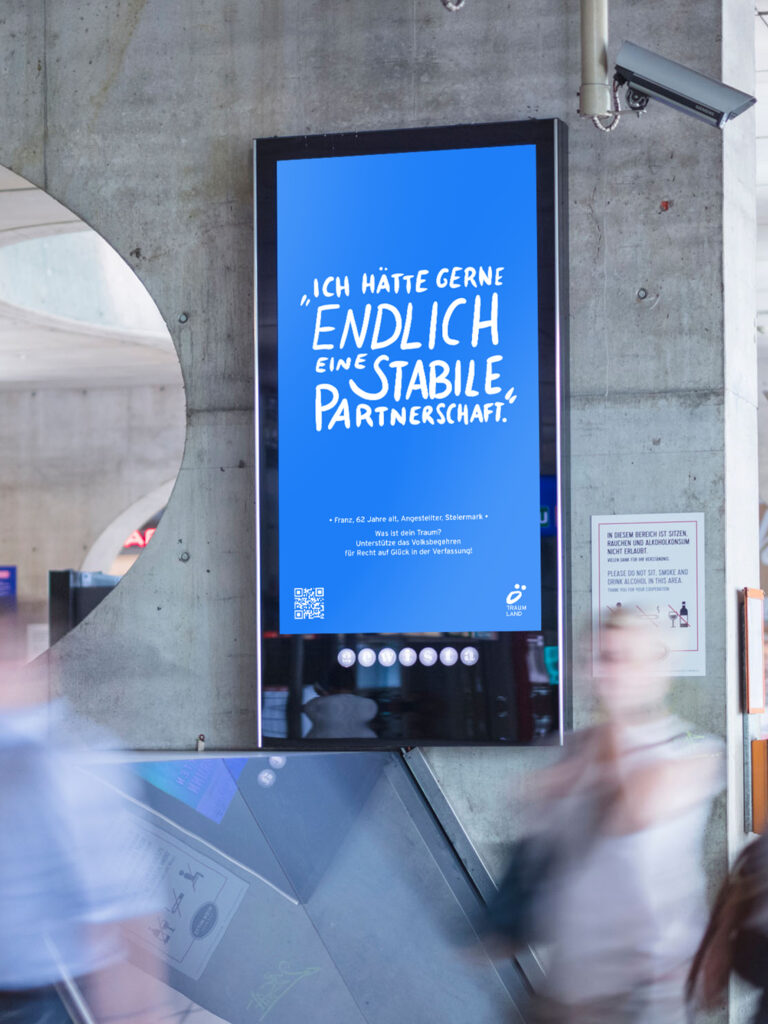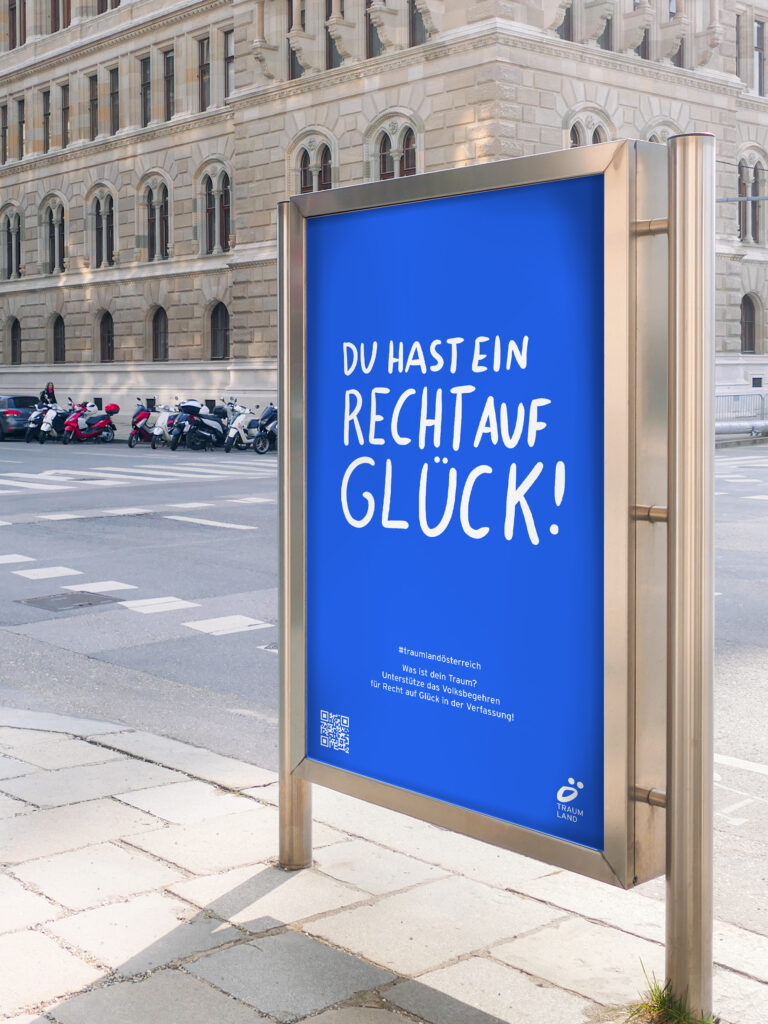The project »Traumland Österreich« (dreamland Austria) initiates the inclusion of the right to happiness in the Austrian constitution through a referendum. With the help of real dream quotes and the hashtag #traumlandösterreich, there is a call to share one’s own dreams in order to increase one’s personal sense of happiness and to increase the visibility of the referendum.

The project »Traumland Österreich« (dreamland Austria) pursues the goal of including the right to happiness in the Austrian constitution. Through conversations with a large number of people about life dreams and the search for happiness, I have realized that just about every dream is dependent on or influenced by political decisions. A petition for a referendum therefore seems to make sense, as including the right to happiness in the Austrian constitution would not only send a strong signal in society, but could also broaden the political focus from economic to ecological and social issues. The use of dream quotes in campaign communication aims to make the petition for a referendum accessible and relevant by conveying real messages. Because simply voicing one’s own dreams already contributes to the feeling of happiness, people in Austria have the opportunity to share their dreams with other people with the help of the hashtag #traumlandösterreich and can thus contribute to the reach of the referendum.

In my motivation to create something meaningful, I went on a journey to explore people’s deepest motivations, which they may not yet have discovered or forgotten. In numerous conversations about life’s dreams and heart’s desires, I have found that the pursuit of happiness is the common denominator of all dreams. Each of us should have the right to be happy – literally. During my research, it became clear that although happiness is described directly in other human rights, it is not explicitly mentioned in the Austrian constitution. The inclusion of the right to happiness in the constitution would have far-reaching implications, which I will discuss in more detail in this thesis.The continuing question is: How can the right to happiness be included in the Austrian constitution? This is where the instrument of the referendum comes into play, which, in combination with authentic quotes from people about their life’s dreams, illustrates the relevance of this project.


For the dream collection, I held personal conversations with around 20 people and also exchanged ideas with just as many via chat.The valuable insights and diverse perspectives that I gained in the process were crucial for the development of the project. From the conversations, I selected the most polarizing life dreams for the campaign and shortened them. I deliberately included people from my social environment, including representatives from a wide range of backgrounds, professions and social classes, from academics to people experiencing unemployment or receiving support from Volkshilfe. These conversations created a familiarity and connection that strengthened the project. In addition, I consciously sought contact with strangers and used chance encounters to capture additional perspectives and broaden my horizons. This resulted in inspiring and surprising conversations that brought new insights.

In my research and discussions, it became clear that life’s dreams are closely linked to political issues and that political decisions have a direct impact on their realization. In the conversations, the support for the idea of a referendum increased. It offers people the opportunity to directly influence political decisions and to actively bring their concerns and dreams into the political process. Through a combination of personal conversations, encounters with strangers, and chat communications, I was able to assemble a diverse collection of dreams that allows for the multifaceted representation of human aspirations. The petition for a referendum thus appears to be an effective means of translating these dreams into political reality and increasing their chances of realization.
